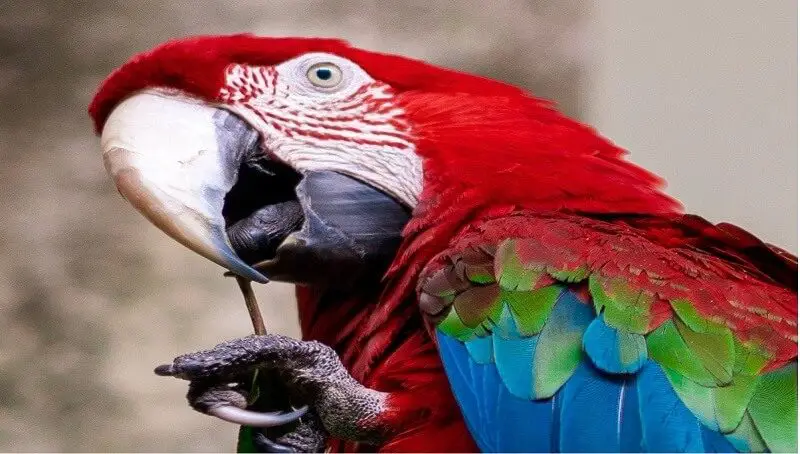
Can Dogs Eat Quesadillas? Any Risks or Benefits?
April 7, 2022
When Can a Cat Go Outside After Giving Birth?
April 8, 2022
The genetic makeup of birds makes it practically impossible for them to develop Down syndrome. In fact, this genetic disorder hasn’t been found in any other animals aside from humans.
So it’s clear. Birds cannot have Down syndrome. So what about those birds that don’t have 100% cognitive functions, or even seem to be disabled right from their birth?
This is something really uncommon in the bird world but it has its explanation.
The common signs that you might notice are:
- It has difficulty eating
- It can’t squawk
- Physical deformities
What you should know right from the bat is that most of these signs, although associated with Down’s syndrome, have no actual connection with this illness in birds. Not even humans with down syndrome would feature these symptoms.
You might also like my article on bird poop and its meaning.
This article comes to your help, to give you a better understanding of what is going on with the bird and whether or not you can help it in any way.
So, instead of simply dismissing these signs and calling them down syndrome symptoms, let’s look at the real root cause. You will also get a few pointers on how to make your bird’s life a little easier if you notice any of the symptoms.
What is behind disability signs in birds
There can be a lot of reasons behind a bird that looks mentally challenged. The best thing you can do when you see obvious signs of a mental problem in your bird is to take it to the vet for consultation. Some issues might be treatable so you wouldn’t want your bird to suffer too long of something that is easily treatable.
If the vet says there’s nothing you can do to improve your bird’s health, maybe you can at least improve its way of life. Below you will find some great tips to make the life of a disabled bird a little easier.
Tips To Help a Bird with Disabilities
1. Buy a Larger Cage
The first thing you can do is to get a larger birdcage, or one specially designed for birds with issues.
This is usually important because it will give your bird a lot more space to live in. Their disabilities might make their lives pretty uncomfortable and a small space might make things worse. A bigger birdcage will surely be a breath of fresh air for them and will make them feel less trapped.
It’s a good idea to get a big cage even for normal birds, but when you have a disabled bird, this becomes even more important.
How large should a cage be for disabled birds?
This usually depends on your bird and its size and species. One of the most important aspects is that the cage is set on multiple levels and is big enough for the bird to move freely and even spread its wings without restriction.
A good starting point for the average pet bird would be a cage of at the very least 30″ x 50″.
A properly sized cage will give the bird the impression of being free.
A disabled bird should also have its own cage, being completely isolated from other birds, so that they don’t harm each other. This could happen even if no harm is meant, just because the ill bird is agitated.
2. Hand-Feed the Bird
 It would be a great idea to hand-feed a mentally disabled bird, especially one that can’t feed itself.
It would be a great idea to hand-feed a mentally disabled bird, especially one that can’t feed itself.
This will also be helpful for you because you’ll be able to control when the bird is eating and how much it will eat. A lot of disabled birds will either forget to eat or they’ll eat uncontrollably, both scenarios causing issues for their physical health.
In the wild, this is something that might even lead to their death, but it can be easily kept in check when you are their owner.
You will surely have to hand-feed your bird if you notice that they are not eating enough, to prevent starvation.
What should you use to hand-feed a disabled bird?
You can either place your hand with bird food in front of your bird or, if you have a particularly aggressive bird, you can feed it using a syringe. Any of these methods will help your bird eat properly.
3. Set Up Multiple Perches in the Cage
Let’s start by answering this simple question: How many perches do you have at the moment in the birdcage?
Installing enough perches inside the bird’s cage will considerably improve its quality of life. It will actually enable them to fly around the cage and keep an active life.
Most birdcages will actually come with just one perch, which surely isn’t enough, especially for a bird that needs to move around.
4. Keep the Cage Clean
A dirty cage can make the bird’s life particularly ugly.
This is something that you should keep in mind even if you have a healthy bird.
It is considerably more important to clean the birdcage in time because it is a known fact that some disabled birds will make a real mess inside their cage. It can become a health issue for the bird if you’re not cleaning the bird’s poop in time or don’t replace the water to keep it fresh.
The easiest way to do this is by creating a strict schedule and sticking to it.
Final words
Can a bird actually suffer from down syndrome? No, this mental issue has never been recorded in birds, so it is very important to take your bird to a specialist and figure out exactly what is wrong with it. It’s either that the bird developed a mental or physical deformity right from birth, or that it has a physical or mental illness that might be treatable.
The best thing you can do for a disabled bird is to improve its quality of life and you can do this by buying a larger cage, with multiple perches, keeping the cage clean, and hand-feeding the pet.
